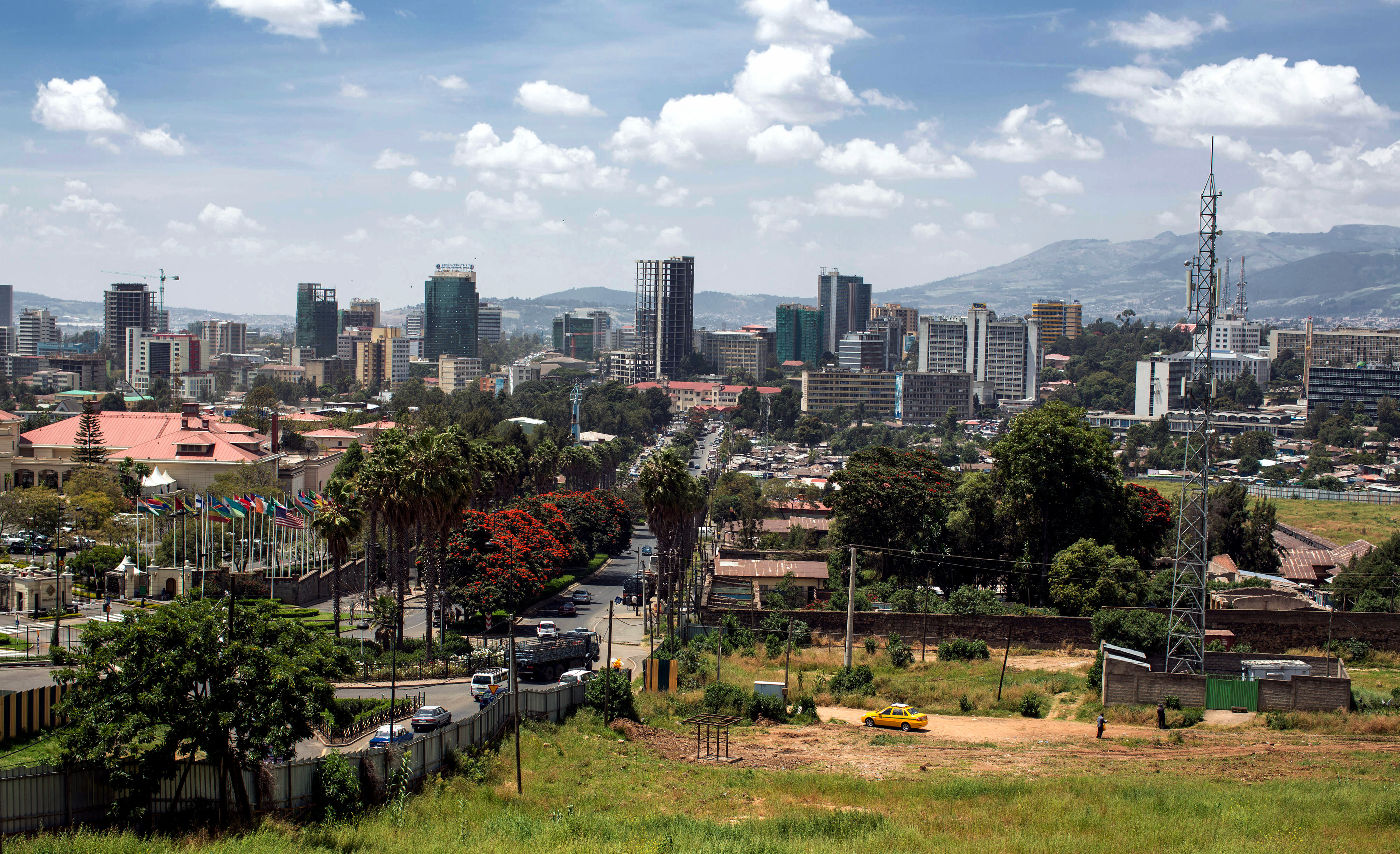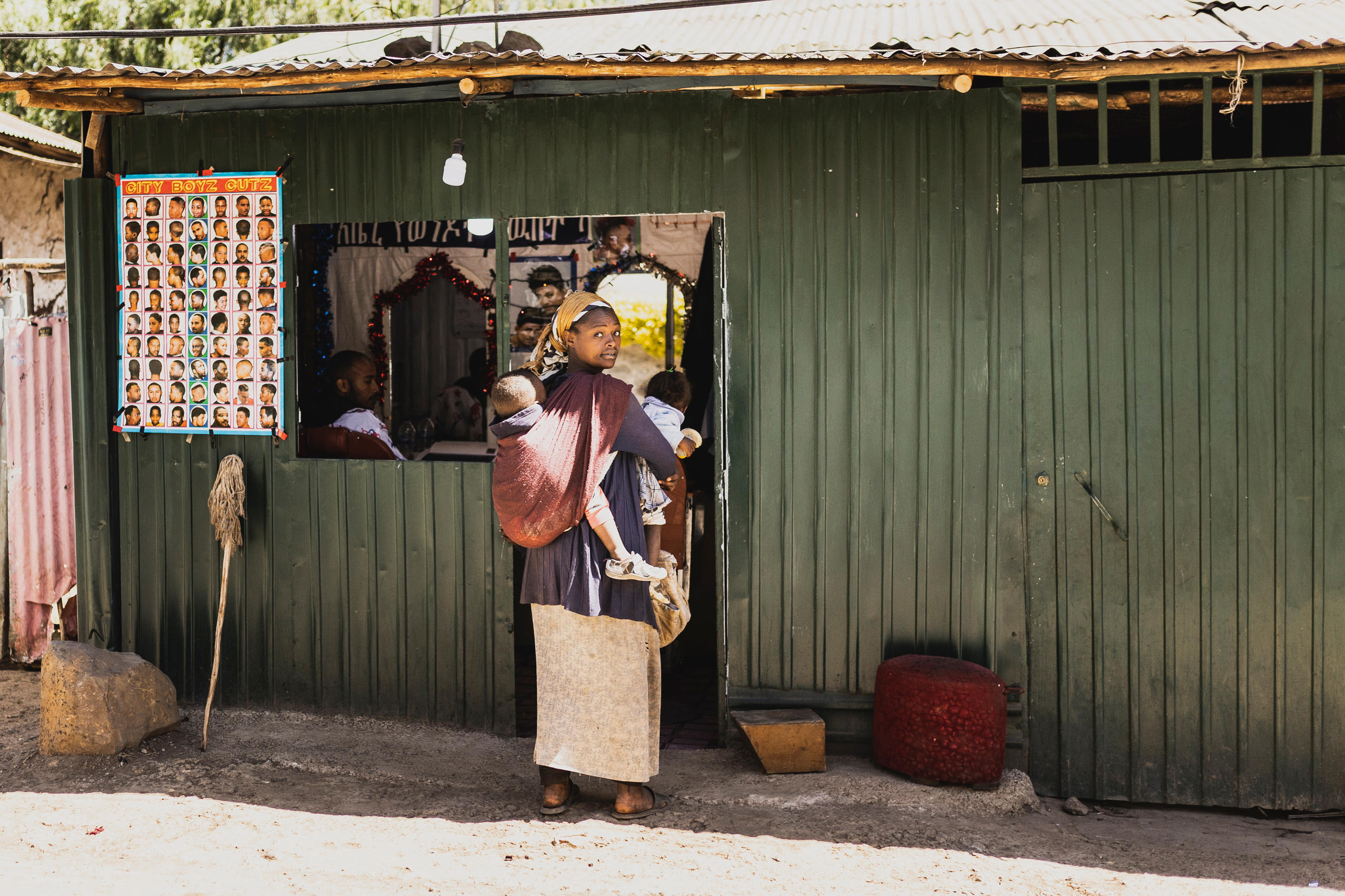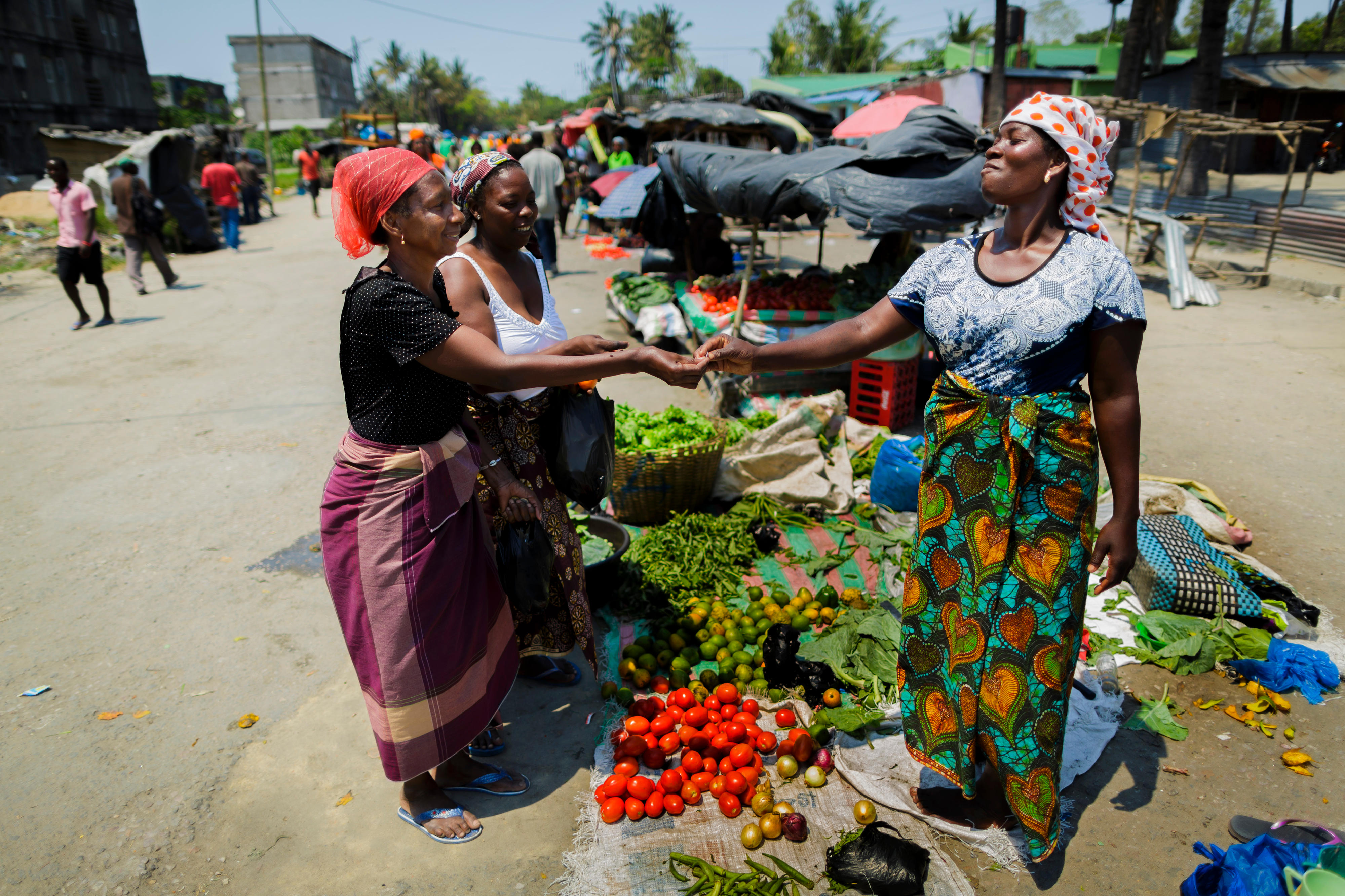View of Addis Ababa, the capital of Ethiopia
Copyright© Thomas Imo/photothek.net
Ethiopia
Until just a few years ago, Ethiopia had been making good progress on sustainably improving the living conditions of its people. However, this progress was thrown off course by several events: the COVID-19 pandemic, a two-year civil war in the Tigray, Amhara and Afar regions in the north of the country, and repeated droughts and flooding due to the impacts of climate change.
Current situation
Straßenszene in Addis Abeba, Äthiopien
The reforms that the government is striving to implement give cause for hope that the situation in Ethiopia will improve in the foreseeable future. However, the security situation continues to be worrying.
The conflict in the north of the country was ended by a peace agreement at the end of 2022. However, not all of the conflict points have been finally resolved. For example, the future of some areas that were occupied during the civil war still needs to be clarified, so that internally displaced persons can return to them.
In May 2024, the Ethiopian government adopted a long-awaited Transitional Justice Policy. The purpose of the policy is to address human rights violations and crimes committed during the civil war. The fighting brought huge suffering to the population and cost many lives on both sides of the conflict.
A period of extreme drought then followed. The impacts of climate change are a long-term threat to livelihoods in the country, where agriculture is one of the main sources of income.
Ethiopia is currently going through the process of opening its economy. This transition has been supported since 2024 by programmes implemented by the International Monetary Fund (IMF) and the World Bank. As part of this process, the Ethiopian government is carrying out ambitious reforms in order to improve the economic policy environment, stabilise the economy and help the country get back onto a path of sustainable development. Budgetary discipline and higher revenues have already created some scope in public coffers for poverty reduction.
The presence of the headquarters of the African Union in Addis Ababa makes Ethiopia an important political centre for the African continent. The country can set the tone for stabilising the whole of the region of the Horn of Africa, especially if the reforms that have been launched take hold.
German development cooperation with Ethiopia
After the Tigray conflict began in November 2020, development cooperation with Ethiopia was initially directed towards conflict-sensitive measures at the local community level. After the conclusion of the peace agreement, Germany resumed its dialogue with Ethiopia on development cooperation in 2023, in step with the European Union. In Tigray development cooperation projects are gradually being continued. In parts of Amhara and Oromia, activities can still only be carried out to a limited degree.
Together with the World Bank and other donors, the Federal Ministry for Economic Cooperation and Development (BMZ) is supporting the reform efforts of the Ethiopian government. The main focus is on safeguarding economic livelihoods, strengthening social protection systems – also with a view to cushioning negative impacts from the economic reforms – increasing food security and moving more towards climate-adapted agriculture.
Core areas of cooperation
Peaceful and inclusive societies
In Ethiopia, Germany is promoting the protection of human rights, democratisation and the participation of civil society in political processes. Furthermore, the BMZ is strengthening Ethiopia’s social protection system, which particularly supports households that are affected by food insecurity.
Processing the events of the civil war, tackling the aftermath of the conflict and rebuilding remain a focus of German-Ethiopian development cooperation. The BMZ is supporting the policy of transitional justice and the Ethiopian Human Rights Commission. Together with the World Bank, Germany is contributing towards improving access to psychosocial counselling and creating safe spaces for the survivors of violence, including gender-based violence against women.
A life free of hunger – transforming food systems
The agricultural sector in Ethiopia has enormous potential, but it is also severely affected by the impacts of climate change. Germany is supporting the efforts of its partner country to increase the productivity and resilience of smallholder agriculture. This includes support for efforts to rehabilitate degraded agricultural land. Sustainable agriculture is being introduced in dried-up valleys in the Ethiopian lowlands that have been rehabilitated, with a view to increasing the region’s drought resilience. The BMZ is also promoting the modernisation and mechanisation of agriculture.
In order to strengthen value chains, the processing of agricultural products is being supported. The focus here is on coffee – the most important product in German-Ethiopian trading relations.
Sustainable economic development, training and employment
Germany is supporting the Ethiopian government’s comprehensive programme of reforms, which envisages an economic model in which the private sector plays a leading role. German engagement in Ethiopia is helping to improve the business environment for small and medium-sized enterprises and open up access to credit for them. The aim is to create sufficient future-viable jobs for the largely young population.
This engagement is flanked by long-standing German-Ethiopian cooperation in the vocational training sector. So far, more than 450,000 young Ethiopians have been able to benefit from high-quality training along the lines of the German dual training model.
SDG trends for Ethiopia
- On track or maintaining SDG achievement
- Moderately improving
- Stagnating
- Decreasing
- Trend information unavailable



















